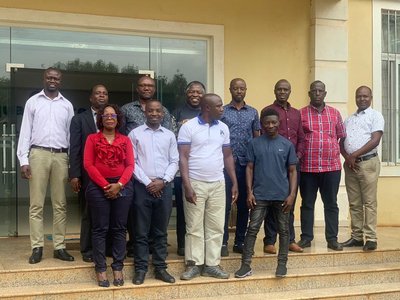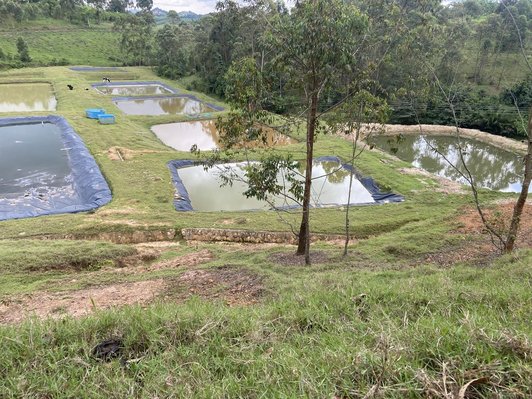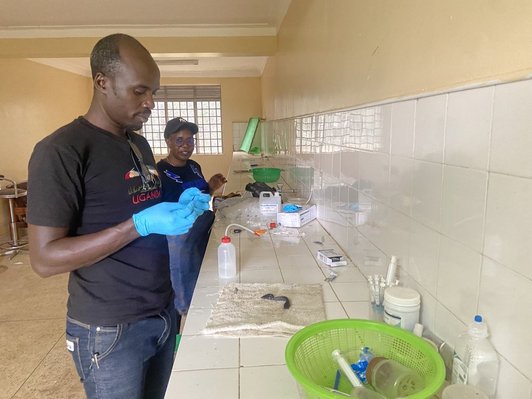

Despite the African catfish being among the most farmed species in Uganda, inadequate supply and high cost of good-quality fish feed, poor quality seed, and limited knowledge on the genetics and genetic management of different strains/populations continue to hinder its aquaculture growth. To enhance catfish aquaculture production, this study assessed the current broodstock and hatchery management practices along with farmer operator demographics, challenges, and recommendations for improving seed production in Uganda.
The study highlights that the effective population size (Ne) for most respondents was 133.33 and 178.22, with mean breeding coefficients of 0.4% and 0.3%, respectively. Farmers also continue to use shooters (fast-growing, cannibalistic fish) as broodstocks, based on the assumption that they possess superior genetic traits. The study also indicated that farmers still source broodstock from fellow farmers and natural waterbodies with unknown genetic backgrounds, increasing the risk of inbreeding. Research institutions (ARDC and ZARDIs) should play a key role in characterizing both farmed and wild stocks of C. gariepinus, including shooters, to provide farmers with updated genetic information.
Since most farmers lack aquaculture-tailored training, the Ministry of Agriculture, Animal Industry and Fisheries (MAAIF) must support these farmers by equipping them with short courses tailored to hatchery operation Best Management Practices (BMPs), including broodstock management, hatchery operations, farm record keeping, and fry feeds and feeding While Uganda’s African catfish aquaculture industry is expanding rapidly, certain hatchery practices pose significant risks to its sustainability if not properly addressed.
This work is part of the Africa-UniNet | Project133_Uganda (AFRI-FISH) collaboration between Busitema University (Uganda) and BOKU University (Austria), which since 2024 has been working to strengthen research and training for the development of a sustainable African Catfish Breeding Programme in Uganda. The project is led by Prof. Waiswa Wilson Mwanja (Principal Investigator) with support from Dr. Sylvie Muwanga Tebitendwa at Busitema University, and by Prof. Harald Meimberg, assisted by Mr. Gerald Kwikiriza, at BOKU University.
Read the full article here:
Kwikiriza, G., Tebitendwa, S. M., Rwezawula, P., Mwanja, W. W., Abaho, I., & Meimberg, H. (2025). Enhancing African Catfish (Clarias gariepinus) Aquaculture in Uganda: Insights into Hatchery Propagation, Population Suitability, and Broodstock Management. Fishes, 10(6), 290. https://doi.org/10.3390/fishes10060290.

